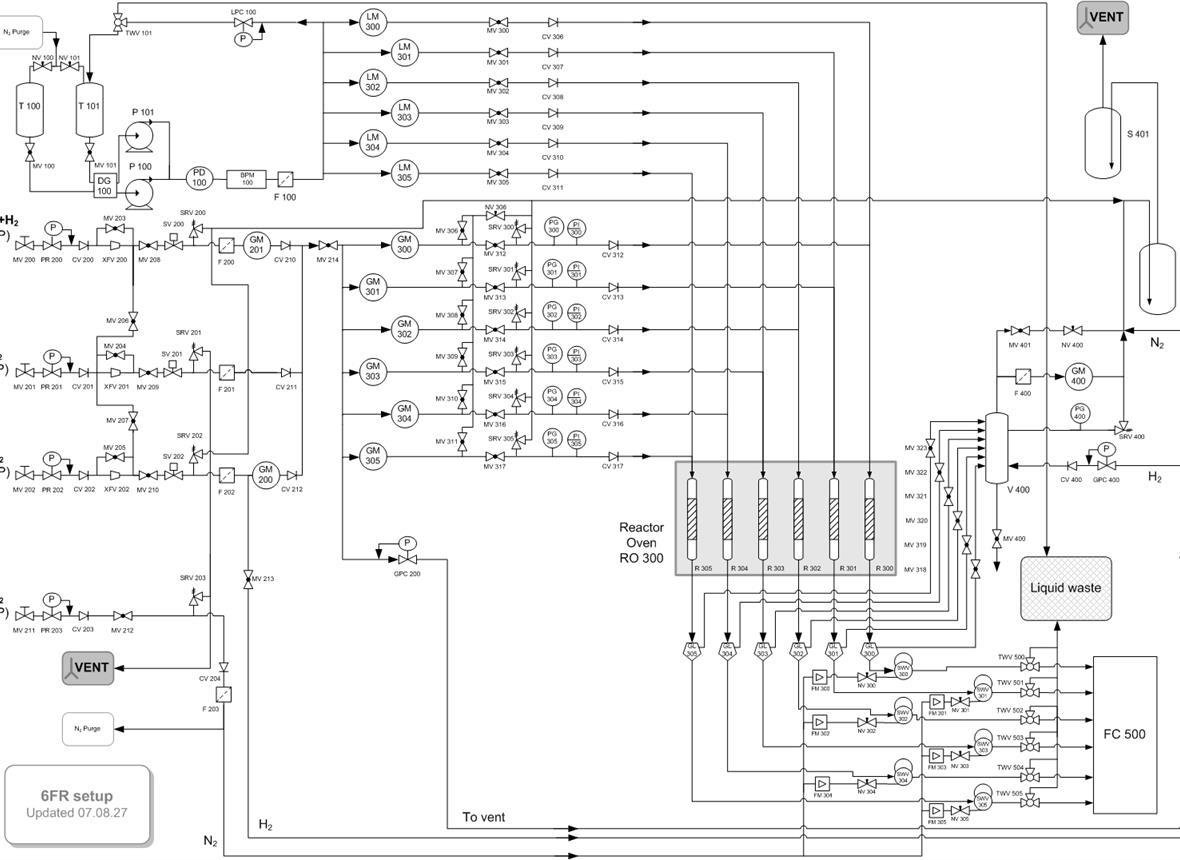Abstract
The deactivation of bifunctional catalysts (Pt-Pd/support) has been studied on the hydrocracking of LCO (light cycle oil, which is a highly aromatic byproduct in the FCC unit). The reactions were performed in a fixed bed reactor using a Pt-Pd catalyst
prepared with supports of different acidity and pore structure: B (H-beta zeolite), Y5 , Y 12 (H-USY zeolites with SiO 2 /Al 2 O3 =5 and 12), F (commercial FCC catalyst) and A (γ-Al 2O
3). The operating conditions were: 350 ºC, 50 bar, WHSV= 4 h
-1 , H 2 /LCO ratio (n H2) =8.9 and time on stream (TOS) = 300 min. The results show that, once the initial deactivation has been elapsed, the catalyst reach a pseudo-stable state subsequent to TOS = 250 min, with a considerable
residual activity that is maintained constant. This residual activity increases as catalyst acidity is increased.
Keywords
W2C
HCE
HPC
